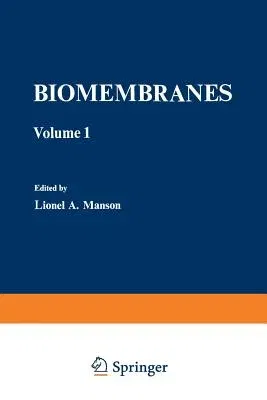Lionel A Manson
(Author)Biomembranes: Volume 1 (Softcover Reprint of the Original 1st 1971)Paperback - Softcover Reprint of the Original 1st 1971, 8 March 2012

Qty
1
Turbo
Ships in 2 - 3 days
In Stock
Free Delivery
Cash on Delivery
15 Days
Free Returns
Secure Checkout
Part of Series
Biomembranes
Print Length
294 pages
Language
English
Publisher
Springer
Date Published
8 Mar 2012
ISBN-10
1468433296
ISBN-13
9781468433296
Description
Product Details
Author:
Book Edition:
Softcover Reprint of the Original 1st 1971
Book Format:
Paperback
Country of Origin:
NL
Date Published:
8 March 2012
Dimensions:
22.86 x
15.24 x
1.65 cm
ISBN-10:
1468433296
ISBN-13:
9781468433296
Language:
English
Location:
New York, NY
Pages:
294
Publisher:
Series:
Weight:
412.77 gm

